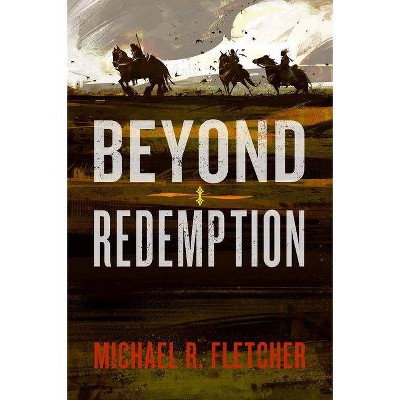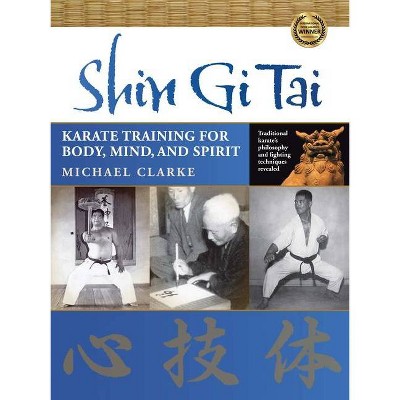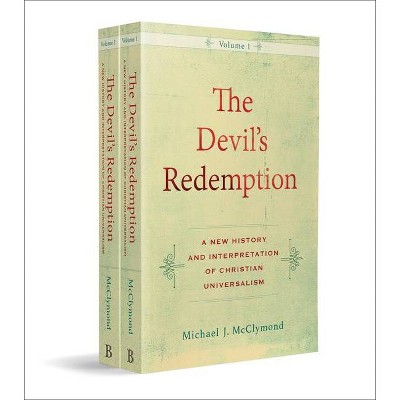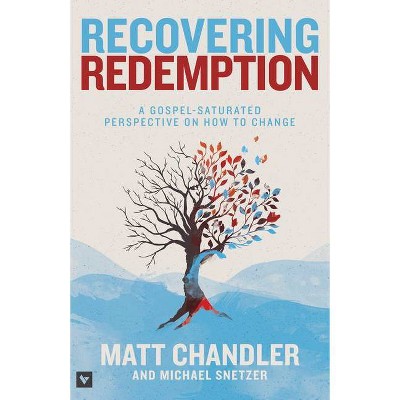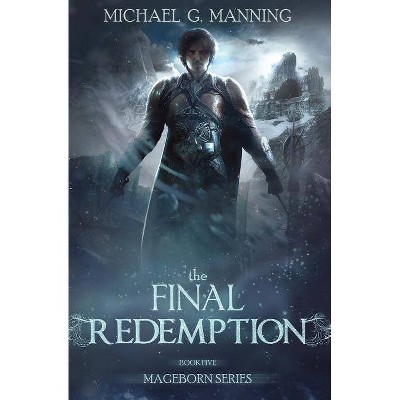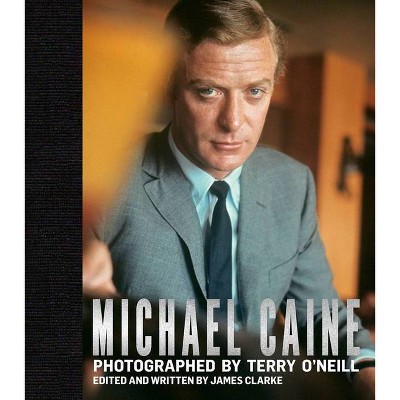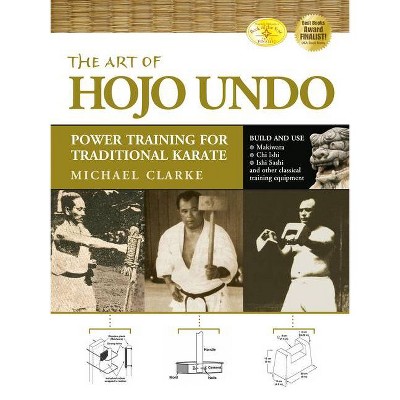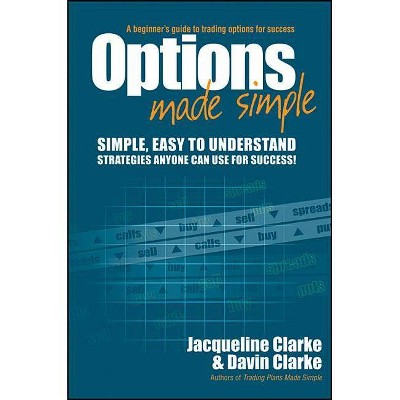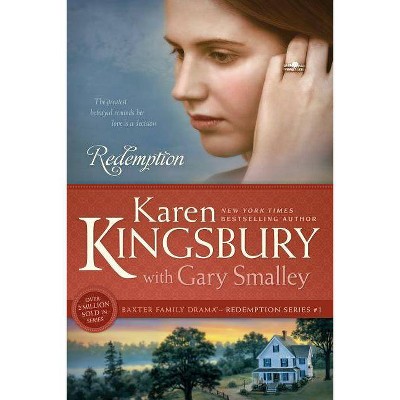Redemption - by Michael Clarke (Paperback)
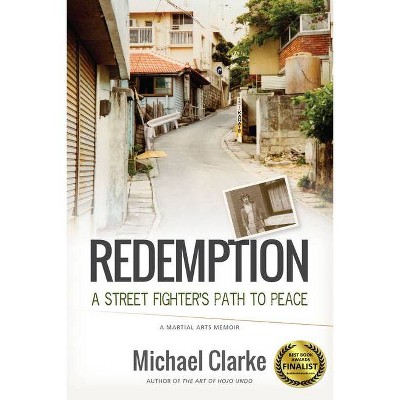
Similar Products
Products of same category from the store
AllProduct info
<p/><br></br><p><b> About the Book </b></p></br></br>Michael Clarke was a street fighter, an angry, vicious kid. He grew up in the late sixties and early seventies in Manchester, England, and lived in a rough neighborhood where, he writes, "Prostitutes worked the pavement opposite my home, illegal bookmakers took bets in back alley cellars, and street brawls were commonplace." Then he entered a karate dojo and his life changed forever.<p/><br></br><p><b> Book Synopsis </b></p></br></br><p>Michael Clarke was an angry, vicious kid, a street fighter. He grew up in the late sixties and early seventies in Manchester, England, in a tough neighborhood where, he writes, "Prostitutes worked the pavement opposite my home, illegal bookmakers took bets in back alley cellars, and street brawls were commonplace."</p> <p>He left school at fifteen and began his education as a pugilist on the streets. He fought in bars and clubs, at football matches, in parks, and in bus stations--and he was good. He reveled in the victories and the admiration they brought.</p> <p>It was a life of knuckles and teeth, of broken bones and torn flesh--and the arrests that followed. Clarke was seventeen when a judge sentenced him to two years in Strangeways Prison, an infamous place also known as "psychopath central."</p> <p>In prison he resolved to change his life and stay out of trouble, but trouble was everywhere. He discovered a world of violent gangs, abusive guards, and inmates engaged in an endless struggle for dominance. Strangeways was a place where a person could get stabbed to death for taking the bigger piece of toast.</p> <p>In time Clarke was released, but the transition was difficult and he almost fought his way back to prison. Then one night he entered a karate dojo and his life changed forever. He began a lifetime pursuit of budo, the martial way. He sought knowledge, studied with masters, and traveled to Okinawa, the birthplace of karate.</p> <p><i>Redemption: A Street Fighter's Path to Peace</i> is a true account of youth wasted and life reclaimed. Michael Clarke reminds us that martial arts are not simply about punching and kicking. They forge the spirit, temper the will, and reveal our true nature.</p><p/><br></br><p><b> Review Quotes </b></p></br></br><br>A British "karateka" offers a bone-crushing, lip-splitting, and often elegant memoir of a tough guy searching for higher meaning through the study of martial arts. As a youth, Clarke was the kind of hard-as-nails teen who was fond of communicating with his fists. He was good at it, and despite his diminutive size, he could be counted on to win most scraps. But when the Irish émigré's rough-and-tumble ways ultimately landed him in the aptly named Strangeways Prison in Manchester, England, he realized that breaking noses and cracking ribs had limited value beyond the strict borders of his hard-pressed neighborhood. The author describes his prison experiences in wonderful, almost lyrical prose that delivers both poignancy and punch: "During the visits, no physical contact was allowed; there was no chance to feel the warmth of another person who was dear to you, not your girlfriend, nor your mother, or even your child if you had one." Sadly, Clarke doesn't linger on this rich material for long before he's deep into his karate chronicles, introducing the numerous schools, teachers, and training techniques he encountered during the late 1970s and early '80s. He discusses various clashes in great detail, which resulted in a variety of injuries. He also addresses the sensitive politics specific to the world of karate. What's missing in these sections, however, is the sobering, sure-handed universality that Clarke brings to the portrayal of his earlier days. He makes cursory references to the dissolution of his first marriage and the stresses that his single-minded pursuit of karate placed on his personal life, but it's clearly evident that Clarke is much more interested in delving into dojo dynamics than anything else. This approach may shut out a large segment of non-karate enthusiasts who might otherwise have found Clarke's life undeniably fascinating. A compelling story that nevertheless will appeal almost exclusively to karate fans.--A British "karateka" offers a bone-crushing, lip-splitting, and often elegant memoir of a tough guy searching for higher meaning through the study of martial arts. "Kirkus "<br><br>Exceptionally well written and presented, Redemption: A Street Fighter's Path to Peace, is a consistently compelling, intensely personal, and ultimately inspiring memoir. Unreservedly and emphatically recommended for community library biography/memoir collections.--Able Greenspan, MBR Bookwatch<br><br>Though this book is grounded in karate, the overarching theme of overcoming the past and persevering through adversity is universal. While "grit" is considered one of the biggest indicators of someone's potential for success, the question is how to teach people what it is and how to cultivate it. One way would be to hand them a copy of Redemption: A Street Fighter's Path to Peace by Michael Clarke. In this memoir describing how karate turned his life around, Clarke displays passion and grit in spades. Clarke, author of The Art of Hojo Undo and hundreds of articles for martial arts magazines, revisits his early years as a troubled youth in Manchester, England and the first decade of the karate training that lifted him out of a violent existence. With humility and vulnerability, Clarke lays bare the angry past that landed him in prison two days before his eighteenth birthday. Upon his release eight months later he vowed to change his ways and never return, but that was easier said than done--until the day he walked into a karate studio and found his passion. This is a revised edition of Clarke's original memoir, Roaring Silence, written in 1985. He has seamlessly melded the original work, sometimes flavored with the naiveté of the young thirty-year-old he was back then, with the wisdom that has come with age and hindsight. For example, the memoir ends with a life-changing journey to Okinawa to seek out Morio Higaonna, a karate master featured in a BBC documentary series on martial arts. Clarke believed he could find Higaonna sensei's dojo simply by wandering around and looking for the building he had seen on TV, and then he would ask the master to teach him. All the things that could go wrong with this plan just didn't enter his mind. "Ignorance can be a beautiful thing sometimes," he writes. Clarke's writing is characterized by passion and his memoir is full of emotion, from his heart-quickening description of the tension leading up to a difficult conversation with a former teacher to his strong views on how karate has changed, and not necessarily for the better. His passion often turns eloquent when he writes of budo, or authentic karate training: "Budo is found in adversity, in the discomfort of the unfamiliar, and is absorbed into your character by the choices you make when all around you is not as you would like it to be. Your mind is where progress is made or lost, and character is developed or allowed to shrink in the face of hardship."--Christine Canfield, In this memoir describing how karate turned his life around, Clarke displays passion and grit in spades. "Foreword Reviews, January 21, 2016 "<br><p/><br></br><p><b> About the Author </b></p></br></br>Michael Clarke, Kyoshi eighth dan, Okinawan Goju-ryu, has practiced karate since 1974. He has written over five hundred articles for international martial arts magazines and authored five books. A young street fighter in England who became a disciplined student of budo in Okinawa, Clarke continues to pursue the tranquility that comes from "the ecstasy of sweat" associated with the practice of karate. Michael Clarke resides in Tasmania, Australia.
Price History
Price Archive shows prices from various stores, lets you see history and find the cheapest. There is no actual sale on the website. For all support, inquiry and suggestion messagescommunication@pricearchive.us
